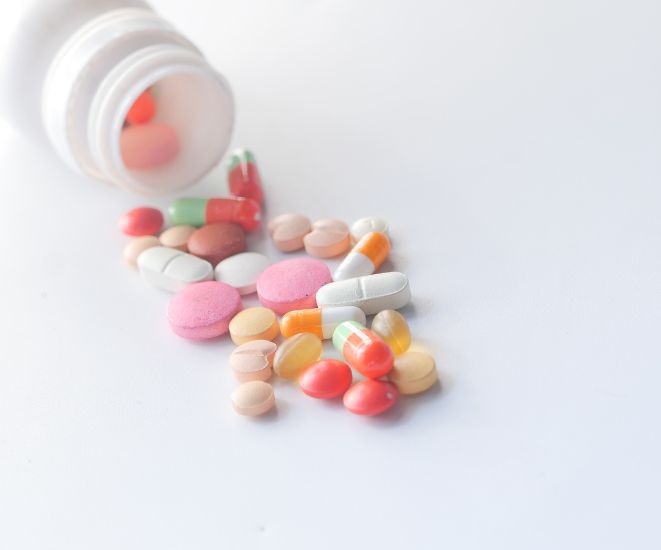A Simple Guide to Medications and Surgeries
Ulcerative colitis is a long-term disease that causes inflammation and sores in the colon (large intestine) and rectum. It can make people have stomach pain, diarrhea and other uncomfortable symptoms. There are many ways to treat ulcerative colitis. Below, we discuss ten different treatments available for ulcerative colitis.
1. Aminosalicylates
Aminosalicylates are medicines that help lower inflammation in the inner lining of the intestine. These drugs are often used for people with mild to moderate ulcerative colitis. They work by reducing irritation and inflammation and help the colon heal. These medicines are taken by mouth or as enemas, depending on where the inflammation is located.
2. Corticosteroids
Corticosteroids are strong medicines that can reduce inflammation quickly. They are generally used for short periods when the symptoms are very bad. Corticosteroids act fast to control flare-ups and help people feel better quickly. However, doctors use them only for a short time because they can cause side effects if taken for too long. Side effects might include weight gain, mood changes or even higher blood pressure.
3. Biologics
Biologics are a newer group of drugs that work by targeting specific parts of the immune system. These medicines help reduce the inflammation that causes ulcerative colitis by blocking proteins in the body that lead to swelling. Biologics are usually given through an injection or infusion. They are usually used when other treatments have not worked well or when the disease is more severe.
4. Immunosuppressants
Immunosuppressants work by weakening the part of the immune system that causes inflammation. Because ulcerative colitis is thought to be partly due to the immune system attacking the colon, these medicines can help slow down the disease. They may take a few months to become effective, so people need to be patient when taking them.
5. Janus Kinase (JAK) Inhibitors
Janus Kinase inhibitors, or JAK inhibitors, are a newer kind of treatment for ulcerative colitis. These medicines block certain messages in the body that tell inflammation to happen. These drugs are used when other types of treatment may not have worked well. Like other treatments, they also have side effects and need careful monitoring by a doctor.
6. Proctocolectomy and Ileal Pouch
In cases where the disease is severe or when other treatments do not help, surgery may be needed. One common surgery is proctocolectomy with the creation of an ileal pouch. This surgery removes the colon and rectum. A pouch is then created from a part of the small intestine (ileum) and attached to the anus. This new pouch helps store stool and allows a person to pass stool more normally. Though it is a major surgery, many people find that they have a better quality of life after the procedure.
7. Proctocolectomy and Ileostomy
Another surgical option is proctocolectomy with ileostomy. In this surgery, the colon and rectum are removed as well. However, instead of creating an internal pouch, an opening is made in the abdomen where the small intestine is brought out. This opening, called an ileostomy, is covered by a bag that collects stool. This surgery is sometimes needed when creating a pouch is not a good option. Like any major surgery, it is important for patients and doctors to talk about the effects on daily life.
8. Antidiarrheal Medicines
Ulcerative colitis often causes diarrhea, and antidiarrheal medicines can help control this symptom. These drugs work by slowing down the movement of the intestine, which gives the body more time to absorb fluid. This can be very helpful when a person is dealing with many loose stools. Though these medicines will not cure the disease, they can help provide comfort and reduce the risk of dehydration.
9. Antispasmodics
Antispasmodics are medicines that help relax the muscles in the colon. When these muscles contract too much, they can cause pain or cramping. Antispasmodics are used to relieve these uncomfortable symptoms and can be used along with other treatments to help manage the pain that often comes with ulcerative colitis.
10. Pain Relievers
Pain is a common complaint for people with ulcerative colitis and pain relievers can help make people feel more comfortable. Over-the-counter pain relievers such as acetaminophen (Tylenol) are often recommended. However, some pain relievers like nonsteroidal anti-inflammatory drugs (NSAIDs) can make ulcerative colitis worse. It is important to talk with a doctor before taking any new pain medicine to be sure that it is safe for someone with ulcerative colitis.
Managing Symptoms is Possible
Ulcerative colitis can be managed with many different treatments. Depending on how severe the disease is and how a person responds, doctors might use one or more of these treatments. With the right treatment plan, people with ulcerative colitis can work towards feeling better and managing their symptoms day by day.
The information on this website is for general educational purposes only and is not a substitute for professional medical advice. Always consult your doctor or qualified healthcare provider before making changes to your health, diet or treatment plan.
